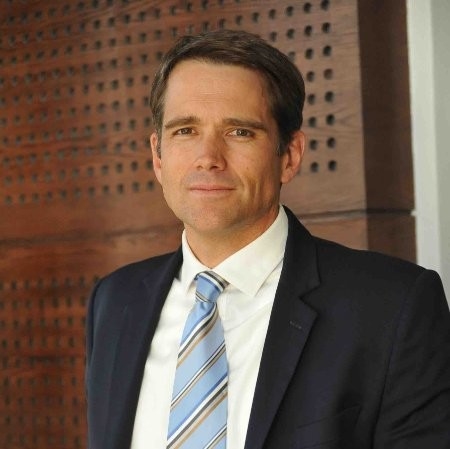Infra investment key to economic recovery and growth in Africa
Guest writer: Stephen Barnes, global head, power and infrastructure, client coverage at Standard Bank Group
Africa’s water, transport and power infrastructure networks are still in their early stages of development. In fact, the World Bank approximates that over half of people living in sub-Saharan Africa are without access to electricity. With the average African citizen being just 20 years old, this means that African nations will need to double annual infrastructure investment to $150 billion by 2025 in order to meet this young population’s demand.[1]
There isn’t a lack of private capital to fund projects in Africa, however, what we are seeing is a shortage of bankable investment projects. This is largely a result of
Crucial to this will be moving the focus from individual infrastructure projects to the entire associated value chain, in order to unlock the significant multiplier effects through the impacted economies. Transport corridors, for example, ensure that Africa has consistent routes to market and is in a position to attract quality investments. Improving the efficiency of transport corridors greases the wheels of trade and promotes economic activity across various sectors within the economy, creating the necessary opportunity for long-term, sustained economic growth.
One example of this is the Maputo corridor. Here, investments in port infrastructure trickled down to investment in the N4 highway, which in turn, linked crucial mining towns to the value chain. On top of this, the African Continental Free Trade Area is expected to make it easier to trade between African nations, creating multiple dollars of economic benefit.
Energy supply
We must also consider sub-Saharan Africa’s energy supply challenges as we look towards more infrastructure investment on the continent. This includes, but is not limited to, grid tied generation capacities and rooftop solar home systems. Starsight Energy, a West African Commercial and Industrial Energy Provider and M-KOPA, a PAYG solar market company, are two examples of companies offering necessary solutions to Africa’s energy supply challenges.
Starsight Energy has deployed 41MW of generation assets, 33 MWh of storage, and 16,320 HP in cooling capacity across 547 sites in all Nigerian states and Ghana. Its relationship with Original Equipment Manufacturers to deploy smart technology and optimise energy consumption, is key in its ability to enable customers to significantly reduce energy costs, boost profitability and importantly, reduce their carbon footprints.
M-KOPA has provided nearly $400 million in financing that has enabled 1 million customers to access solar lighting, energy-efficient televisions and fridges, smartphones, cash loans, and more through its highly advanced connected asset financing platform. M-KOPA's work is transformative and led to the replacement of kerosene as a source of fuel, avoiding nearly 2 million tonnes of CO2 from entering the climate; creating healthier living conditions.
Other benefits include economic empowerment from savings and the creation of employment; access to information via smartphones and televisions; business owners being able to operate longer hours, and similarly, children studying under better lighting for longer hours.
The importance of digital infrastructure is becoming more apparent than ever before, as business, governments and consumers began communicating and working digitally from their own homes in their droves due to the pandemic. In the longer term, digital infrastructure will be paramount to Africa’s ability to compete on a global scale and will act as a driving force in Africa’s fourth industrial revolution.
Right now, we are seeing a large amount of investment opportunities that offer investors attractive risk return profiles. At Standard Bank, we are confident in the sector and have been involved in financing and advising on a diverse array of infrastructure projects across the continent.
While there is work to be done to ensure governments are creating enabling environments across markets to deliver bankable investment projects, Africa’s potential is huge.
[1] https://www.mckinsey.com/business-functions/operations/our-insights/solving-africas-infrastructure-paradox
Request a Demo
Interested in IJGlobal? Request a demo to discuss a trial with a member of our team. Talk to the team to explore the value of our asset and transaction databases, our market-leading news, league tables and much more.

